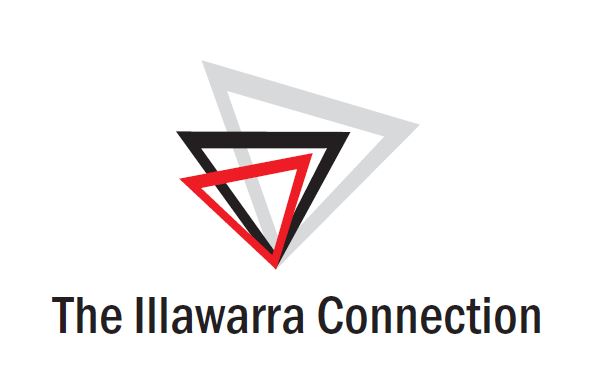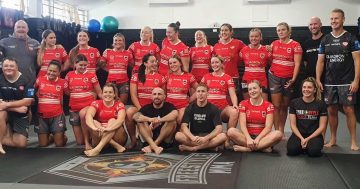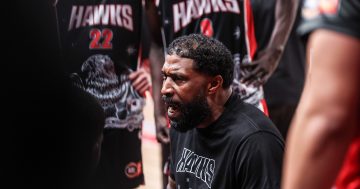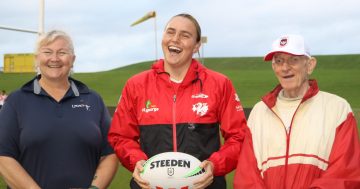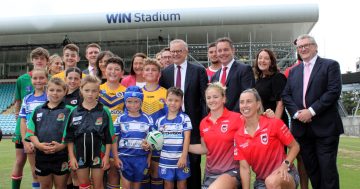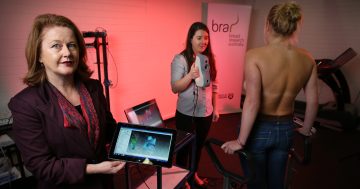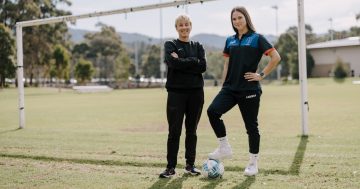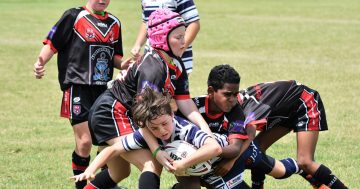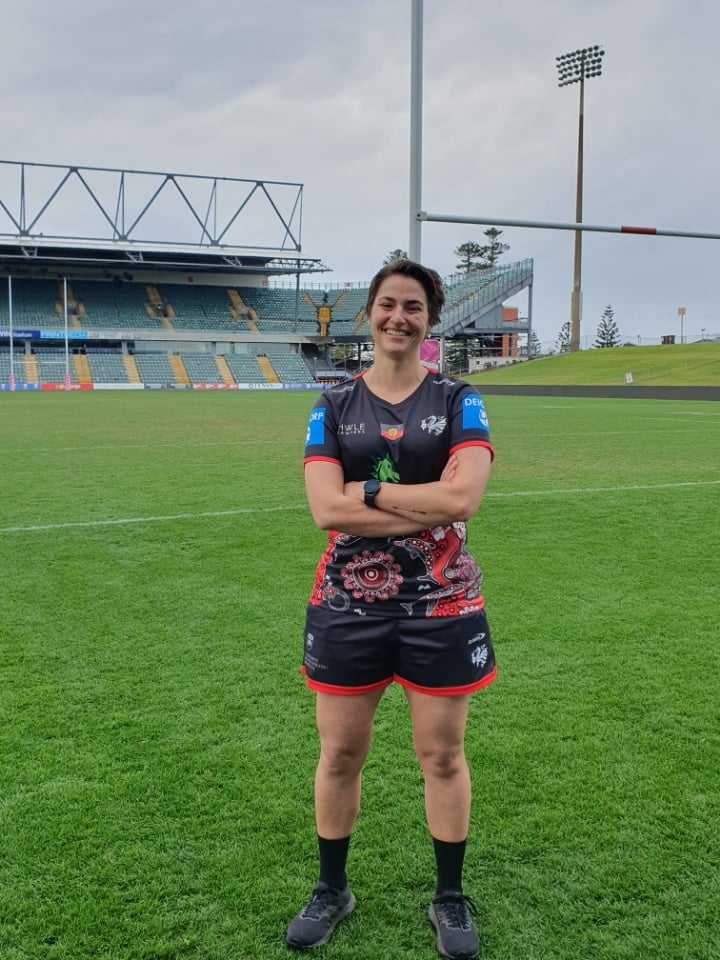
The Female Collective’s Jess Stoll has made history as the St George Illawarra Dragons Women’s first dedicated head trainer. Photo: Jess Stoll.
This season, for the first time since the St George Illawarra Dragons Women side began in 2018, a dedicated female head trainer is running onto the pitch with the players.
The Female Collective’s Jess Stoll is a physiotherapist with a background in musculoskeletal and women’s health – a perfect fit for rugby league.
But the self-confessed AFL afficionado didn’t imagine she’d end up kicking goals in the NRLW.
“I always wanted to work in sport, but I didn’t know anything about NRL until I started working in this space a few years ago,” she said.
“I did a bit with the NSW Country side and frothed it; the girls were great and taught me heaps, and now I’ve been with the Dragons for two and a half years so far.
“We did have another woman as the first to ever cover a game for a match, but I’m the first woman to be the official head trainer for the St George Illawarra Dragons NRLW.
“It felt pretty cool to run on the first Saturday. I’ve hung out with these girls for two years now helping them do their jobs as footballers, so it was really nice to go out there and do my job helping them.”
Jess moved to Wollongong from Griffith in 2017 to specialise in sports and women’s health physiotherapy.
She said initially her boss snuck her into the NRLW as a ‘Trojan horse’ musculoskeletal therapist.
While she was treating players, she was able to have frank conversations about women’s health and performance, too.
“We know women are not just small men,” she said.
“We have heaps of stuff that happens in our bodies that makes us inherently different in a positive way.
“So I was having conversations with the girls around what their periods are like, if they get breast injuries, what their bra is like.
“It had a snowball effect and they started talking about bits and pieces they wouldn’t have felt comfortable to share with a male therapist.”
Those conversations turned into a pitch about the need for education about women’s health to the NRLW – a pitch the league took up enthusiastically.
Jess developed an education session on women’s health and performance that was delivered to every club in the league.
“The NRLW funded us to go around all the clubs and talk about the menstrual cycle, breast health, the pelvic floor, all these bits and pieces that ultimately underpin performance,” Jess said.
“It was great.
“Athletes often don’t have someone telling them things like how important it is to have a good sports bra and not just a swimming top, or that it’s not normal to lose your period.
“Your menstrual cycle is a really useful window into how your body is functioning, and if that changes it’s a sign that something is not right in your training or recovery.”
Jess also delivered an education session to rookie players as part of a camp to prepare the young women for their careers as semi-professional athletes.
She said across the board the reception to the sessions was positive, but it was not just about the players.
As more women fill roles in clubs, more pathways open up for young girls looking at a career in sport.
“You can’t be what you can’t see, so to have women hold some of the top positions is huge,” she said.
“Everyone I work with believes these athletes deserve the best, and now we’ve had women have the chance to earn their stripes it makes sense to have women in the support teams as well.”
When she’s not empowering female athletes to be the best they can be, Jess works at boutique women’s health physiotherapy clinic The Female Collective.
Owned by women, with a women-only team, the clinic specialises in treating female athletes and working with women through pregnancy and post-partum, as well as addressing women’s health conditions such as pelvic floor health and endometriosis.
“We believe knowledge is power, and we believe in women supporting women,” Jess said.
“We want to give women the information they need to take control of their own health.”




